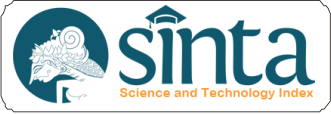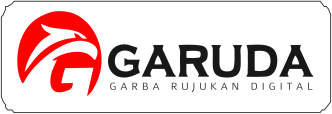Pengembangan Flipbook Modul Berbasis Engineering Design Process (EDP) untuk meningkatkan Literasi Sains Siswa SMP dalam Pembelajaran IPA
Abstract
Scientific literacy is one of the right keys to fight the challenges of the 21st century, this is because scientific literacy can be useful for overcoming problems in the surrounding environment by producing useful products. The purpose of this study is to examine the validity, practicality and effectiveness of module flipbooks based on the engineering design process (EDP). The type and design of the research includes the type of research (research and development) R & D that has been developed using the Plomp research design through the following steps, namely preliminary research, prototyping stage, and assessment phase. Data collection uses several techniques, namely questionnaires, scientific literacy tests and interviews. The instruments in this are validation sheets, student response questionnaire sheets, and observation sheets. Whether or not the module is appropriate is measured using a validation sheet, while the student response anchor sheet is used to measure students' interest in the product that has been developed. The results of the validity analysis of 90% obtained from the three validators means it is very valid, practicality is 94% which means it is very practical with practical indicators in the form of students' fluency in using the flipbook module, and an effectiveness of 0.68 gain from n-gain analysis which means it is quite effective as well as the results of the student response questionnaire sheet in the good category by 72%. The results of the analysis obtained show that using the EDP-based module flipbook where the EDP steps contained in the module flipbook are valid, practical, and effective in learning science can improve scientific literacy of junior high school students.
References
Arikunto, S. 2014. Prosedur Penelitian Suatu Pendekatan Praktik. Jakarta: Rineka Cipta.
Ayu, V. R. K., dan Rinaningsih, R. 2021. Efektivitas handout pada pembelajaran kimia dalam meningkatkan prestasi siswa. Chemistry Education Review (CER). 4(2): 103.
Bybee, R., McCrae, B., dan R. Laurie. 2009. PISA 2006: An assessment of scientific literacy. Journal of Research in Science Teaching: The Official. Journal of the National Association for Research in Science Teaching. 46(8): 865-883.
Desyandri, D., M. Muhammadi., Mansurdin., dan R. Fahmi. 2019. Development of integrated thematic teaching material used discovery learning model in grade V elementary school. Jurnal Konseling dan Pendidikan. 7(1): 16-22.
Fuadi, H., Robbia, A. Z., Jamaluddin, J., & Jufri, A. W. 2020. Analisis faktor penyebab rendahnya kemampuan literasi sains siswa. Jurnal Ilmiah Profesi Pendidikan. 5(2). 108-116.
Hake, R. R. 1998. Interactive-engagement versus traditional methods: a six-thousand-student survey of mechanics test data for introducltory physics courses. American Journal of Physics. 66(1): 64-74.
Mardhiyyah. L., Supeno., dan Z. R. Ridlo. 2022. Development of E-Modules to improve scientific explanation skills in science learning for junior high school students. Jurnal Pendidikan MIPA. 23(1): 34-44.
OECD. 2018. Programme for International Student Assessment. Paris: OECD Publishing.
Nofiana, M & T. Julianto. 2017. Profil kemampuan literasi sains siswa SMP di kota Purwokerto ditinjau dari aspek konten, proses, dan konteks sains. JSSH (Jurnal Sains Sosial Dan Humaniora). 1(2): 77-84.
Pertiwi, U. D., R. D. Atanti., dan R. Ismawati. 2018. Pentingnya literasi sains pada pembelajaran IPA SMP abad 21. Indonesian Journal of Natural Science Education (IJNSE). 1(1): 24-29.
Plomp, T. and N. Nieveen. 2010. An Introduction to Education Design Research. Enchede: SLO-Netherlands Institute for Curriculum Development.
Pratiwi, S. N., C. Cari, dan N. S. Aminah. 2019. Pembelajaran IPA abad 21 dengan literasi sains siswa. JMPF : Jurnal Materi dan Pembelajaran Fisika. 9(1): 34-42.
Ratumanan, T. G., dan Laurent, T. 2010. Penilaian Hasil Belajar Berdasarkan Tingkat Satuan Pendidikan. Surabaya: Unesa Press.
Sumaryatun., A. Rusilowati., S. E. Nugroho. 2016. Pengembangan instrumen penilaian autentik kurikulum 2013 berbasis literasi sains pada materi bioteknologi. Jurnal of Primary Education. 5(1): 66-73.l
Suparya, I. K., Suastra, I. W, dan I. B. P. Arnyana. 2022. Rendahnya literasi sains: factor penyebab dan alternatif solusinya. Jurnal Ilmiah Pendidikan Citra Bakti. 9(1). 153-166.
Supeno., S. Bektiarso, dan A. Munawarroh. 2018. Pengembangan pocketbook berbasis android untuk meningkatkan keterampilan berpikir kritis siswa. Semınar Nasıonal Fısıka (SNF). 26-83.
Wahyuni, Z. A., dan Yerimadesi. 2021. Praktikalitas e-modul kimia unsur berbasis guided discovery untuk siswa sekolah menengah atas. Edukatif : Jurnal Ilmu Pendidikan. 3(3): 680–688.
Yuliati, Y. 2017. Literasi sains dalam pembelajaran IPA. Jurnal Cakrawala Pendas. 3(2): 21-28.











